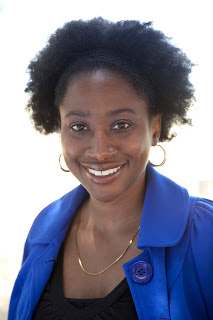
by Jeneé Darden
The Mikell’s Family Magic
As told to Jenee Darden by Tureeda Mikell
When I think of Tureeda Mikell, one of the things that comes to mind is a gem. Tureeda has a brilliant and colorful presence. She radiates beauty on the inside and out. Gems form under extreme conditions deep in the earth. It’s a testament to their strength. Tureeda is a gem in the crown of Oakland’s culture, community and history. In the 1970s she contributed her nursing skills to the Black Panther Party when she worked for one of their clinics in West Oakland. A truth seeker, she spent some time as a journalist. A truth teller, she’s an author, poet and educator. Tureeda has taught critical thinking, poetry and writing in Oakland public schools. She raised a daughter, but graciously shares her maternal energy in the community that affectionately calls her Mama T.
Her shining light comes from her connection to her Black culture and Higher Power. Tureeda is an empath. She identifies as a Story Medicine Woman because she carries the gift of healing through her words as a griot and her medical background.
The Story Medicine Woman has an origin story. Sometimes we put our elders on such a high pedestal, that we forget they were once children trying to figure out the world. Mama T had a mama and daddy. She shared memories of them with me. This is not the full story of Tureeda’s parents, but some pieces of the mosaic that make up their past.
Mama T’s Mamma and Daddy
James Anderson Mikell knew the importance of laying a strong foundation. The skilled mason from Monticello, Mississippi built brick houses with his bare carmel-colored hands. Monticello is a small town about 52-miles south of Jackson. James was the eldest of 10 children, which wasn’t uncommon back in the early 20th century. Relatives described James as a talented man, but he had a temper. A young Black man with a temper wasn’t safe in Mississippi. So, he left.
James enlisted in the army and fought in World War II. One day, sometime in the mid-1940s, U.S. military police beat James badly. Tureeda doesn’t know the story behind the police officers’ assault, but James had to be hospitalized. Although Black soldiers put their lives on the line to fight for the country, they were denied treatment at the same hospitals as white soldiers.
A young nurse with deep dimples tended to James at a Black hospital. Nurse Katie Mildred Dee hailed from a small farming and logging town in Arkansas called Pine Ridge. She was an expert in herbal medicine. During segregation, Black people relied heavily on herbs and salves for medical treatment because hospitals wouldn’t care for them. If there were no Black hospitals nearby, they turned to community herbalists.
The military rejected thousands of applications by Black nurses to help during WWII. By the end of the war, approximately 500 African-American nurses served compared to 59,000 white nurses. Those Black nurses were stationed at just a few camps in the U.S. It’s unclear if Katie’s hospital was in Arkansas. However, if Katie was a military nurse, she was one of very few Black nurses in that capacity.
While war raged thousands of miles away overseas, love blossomed in James’ hospital room. He and Katie fell for each other. They decided to leave the South for a better life. Katie, an only child, brought along her parents for the journey West. On the way, Katie and James stopped in Texarkana, Texas to get married.
Although James had relatives who migrated to Chicago, he chose to settle in Oakland because big cities didn’t appeal to him. Oakland was a small city that offered him space to tap into his agricultural roots.
Home Sweet Oakland
Katie’s parents got their own place after arriving to their new city, while the newlyweds moved into a West Oakland housing project. Then the babies started coming. Tureeda was born first. Her father named her after the family’s Aunt Readie, who had the gift of prophecy and reading spirits. Tureeda said that her father spoke into her the gift of words through her name. Her name sounds like “to read a…book”. Another girl followed Tureeda five years later, then a baby sister two years after.
Their apartment was too small for their family of five. James worked as a janitor for the Mare Island Naval Shipyard in Vallejo. He didn’t want Katie to work outside of the home, but always gave her his earnings on pay day. They saved up enough money to buy a home in East Oakland for $13,000.
The Mikell’s moved on up to the Deep East side of Oakland, right on 98th Avenue and East 14th St. They finally had a house with a backyard for James to garden. The kids enjoyed having more play space. The oldest daughters shared a room, each sleeping on beds with beautiful mahogany posts. While their baby sister slept in their parents’ room. Chinese ornaments, such as incense burners and fans, made up part of the home’s decor. Katie picked up these trinkets during her shopping trips to Oakland’s Chinatown for herbs.
Some days, sounds of James playing blues on the piano filled the house. Tureeda sat next to him on the piano bench learning each key. Other days Katie got in the mood to dance around the living room, moving her body in ways that resembled West African-style of dance. James had a deep respect for Katie. Tureeda never saw her father raise a hand or his voice at her mother. The couple maintained a peaceful energy throughout their home.
The Mikell’s welcomed the neighborhood into their home. Young women came to Katie for relationship advice over a slice of her homemade pound cake. Sometimes women on the block gathered in Katie’s kitchen to shell peas they picked after a long drive to the pea patch. On the weekends, James ran a bootleg barbershop in his garage. Men sat on a sofa along the wall discussing the news, arguing about the latest boxing match and cracking jokes. Tureeda said the barber scenes in Eddie Murphy’s “Coming to America” resembled those days in father’s shop. While the men bantered, the Mikell girls played with other kids in the neighborhood and sucked nectar from flowers.
James’ Wisdom
The rich, deep black soil in the Mikell’s backyard yielded apricots, peaches, Concord grapes, raspberries, tomatoes, greens, potatoes and other fruits and veggies. Tureeda spent many days with her father in the dirt, learning the magic of Mother Nature. James explained to her the importance of soil rotation in producing good food. He taught her when to grow foods at certain times of the year.
James also used vegetation and humans’ connection to nature to teach Tureeda life lessons. Once Tureeda cried because their grape vine and raspberry bush appeared dead. It was a dormant season for those fruits. James looked into her little teary eyes and said, “Everything got to sleep so it can build its strength. It’ll be back.” Of course the sweet fruits returned in the spring.
Katie’s Wisdom
The next best things to picking food from James’ garden was Katie cooking it up. She knew how to throw down in the kitchen. Tureeda doesn’t recall them ever eating a bad meal. The girls didn’t like zucchini. Katie figured out how to season it just right and add it to a savory pie. The girls devoured it. Her pot of collard greens with small balls of cornbread was one of the family’s favorite dishes.
This maternal magic went beyond Katie’s kitchen. She sewed her daughters’ clothes and had a talent for embroidery. Katie made their own hair treatments from herbs. This left a citrusy fragrance of bergamot on the girls’ freshly brushed and braided hair.
Katie was a deeply spiritual woman. She attended church every Sunday and foresaw things in dreams. Little Tureeda had the same gift and talked to her mother about her dreams. Katie may have foreseen something in a dream because one day she warned Tureeda, “Life for you may not always be peaches and cream.” That message stuck with Tureeda. About a year later, Katie passed away from complications with lupus. Tureeda was only 10 years old. Her sisters were five and two years old. .
James and Katie’s Gift of Magic
Katie’s death devastated the Mikell family. James sold their home because living there was a constant reminder of Katie’s absence. The family moved to North Oakland. Losing Katie took such a traumatizing toll on James that he was unable to care for his daughters. Tureeda and her sisters went into foster care. Life wasn’t always peaches and cream for Tureeda. Yet, like that grape vine she cried over, she built her strength over time.
Tureeda’s parents gave their children as much of the world’s magic as they could. That magic in Tureeda appears through her love of nature and music. It shows up in her poetry and how she engages with people. James and Katie left her with gifts that she uses to bless others.
“The best thing they gave me was a grounding in whole reality,” said Tureeda. “My mother, from the spiritual element. My father from the earth and heaven element. Everything works together. Nothing is separate. Everything is connected.”

Jeneé Darden
Jeneé Darden is an award-winning journalist, public speaker, mental health advocate and proud Oakland native. She has reported for such outlets as NPR, Time, Ebony, KQED, and The LA Times. She hosts KALW’s arts segment Sights & Sounds, and is also their East Oakland reporter. Check out her documentary “Where is East Oakland?” on Youtube. Jenee also blogs at CocoaFly.com. Her first book is a womanist collection of poetry and essays titled When a Purple Rose Blooms (Nomadic Press).


